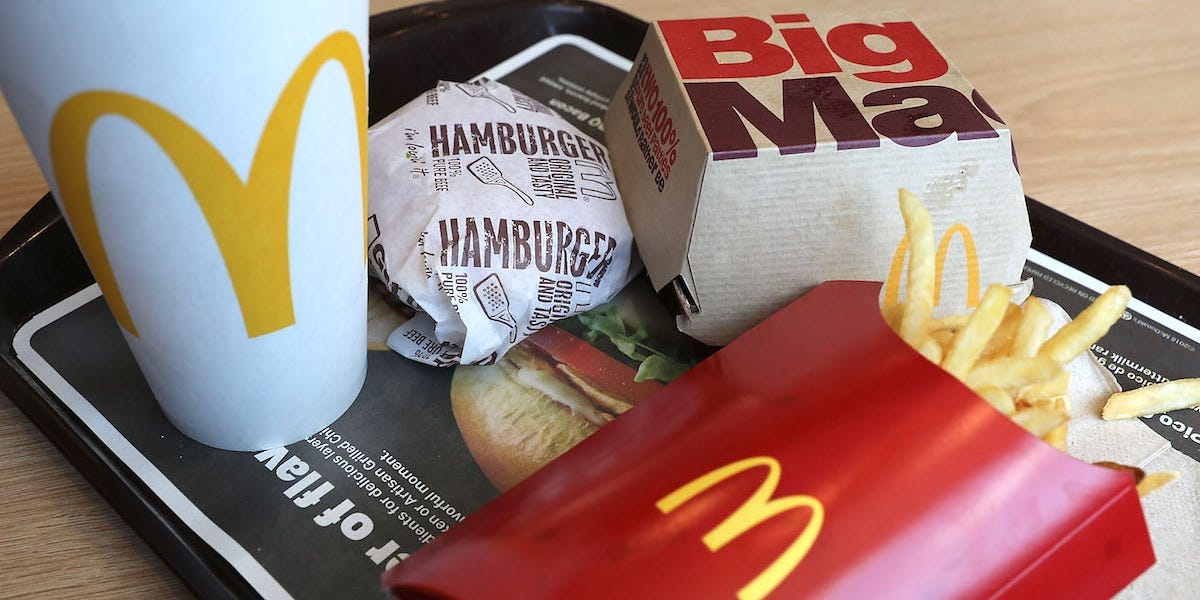More low-income consumers are choosing to eat at home instead of dining out after years of fast-food price hikes, McDonald’s CFO says.
Ian Borden told analysts at the UBS Global Consumer and Retail Conference on Wednesday that lower-income consumers “are just choosing to eat at home more often.”
“If you think of the informal eating-out sector, it’s certainly likely this year that we’re going to see negative traffic from a broad standpoint, from an industry standpoint,” he said.
Borden said that this was partly because inflation is currently much higher for dining out than it is for buying groceries.
The cost of meals at limited-service restaurants — those where you pay before ordering and typically don’t get table service — went up 5.2% in the year to February, compared to just 1% for groceries, per data from the Bureau of Labor Statistics’ consumer price index. Some diners have complained that fast food is too expensive.
Borden also said lower-income consumers had burned through much of their savings from the pandemic. “It’s a challenging consumer environment,” he said.
Like other fast-food chains, McDonald’s increased menu prices significantly during the pandemic amid soaring wage and commodity inflation.
It previously said that it raised US prices by around 10% in both 2022 and 2023. Borden said this was a major contributor to McDonald’s system-wide sales growing by more than 30% since 2019.
But now that inflation is cooling, McDonald’s won’t be putting prices up as much, he said. He had told investors in February that consumers were “wary” of price increases.
McDonald’s will focus on value bundles and app offers
McDonald’s fries.
Erin McDowell/Insider
Lower-income consumers are expecting greater value for money than they did before, Borden said on Wednesday.
“I think consumers in 2024 are going to be much more focused on affordability,” he said. “And that’s certainly what we’re going to focus on and emphasize.”
McDonald’s would, for example, promote its value deals more heavily, such as bundles in the US that come in at under $4, Borden said. In Germany, its McSmart offer, where customers can get two burgers, fries, and a drink for 5.99 euros (around $6.55), has performed “incredibly well,” he said.
Borden added that McDonald’s would be a “lot more active” in using its app to give offers to its loyalty program members.
“We feel really confident about the positioning of our brand because value and affordability is core to who we are,” Borden said.
“We have tended to benefit in any difficult kind of headwind environment because you get the trade-down effect of people moving down the ladder — from let’s call it fast-casual or more informal eating out — into the more value segment,” he added.
Have McDonald’s rising prices put you off? Email this reporter at gdean@businessinsider.com.


